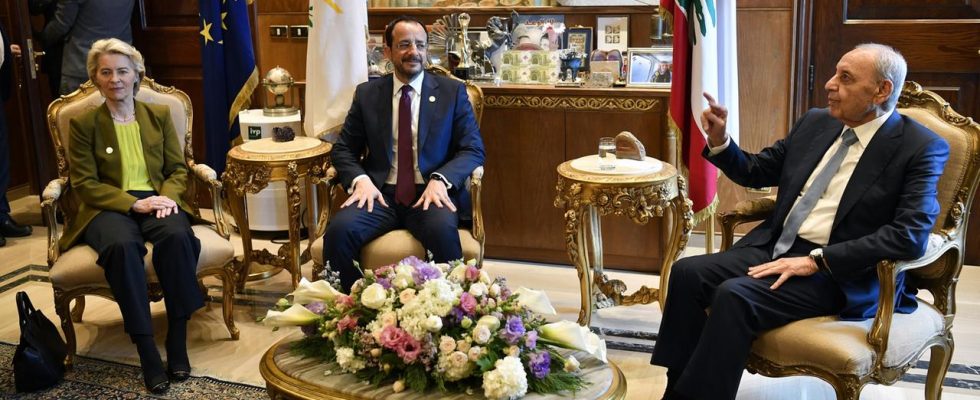interview
In principle, migration agreements such as the EU-Lebanon deal are welcome, says migration researcher Kohlenberger. But the question is whether the financial aid promised by the EU reaches the right recipients.
tagesschau24: Tunisia, Egypt, now Lebanon. What can deals like the one the EU has now concluded with Lebanon bring?
Judith Kohlenberger: The declared goal of the European Union is so-called migration prevention. Specifically, Syrian refugees housed in Lebanon are to be prevented from seeking their way to Cyprus, which has led to a sharp increase in asylum applications there in recent months and weeks.
For Lebanon, this means a much-needed financial injection. The country is not only politically very unstable, but also affected by severe economic hardship. An increasingly large proportion of the population lives below the poverty line. And there is hope that the EU billions in payments will provide relief.
Could “create more causes of flight than combat it”
tagesschau24: The money is intended to bring security and stability to the country. Is this the right measure for this?
Kohlenberger: In principle, I find it welcome that the global north is supporting neighboring countries in conflict and war regions. We know that refugees would like to stay in the region, in the immediate neighboring countries.
However, we see that Lebanon is currently a very politically unstable country. There is always a power vacuum. It is not entirely clear who will be the long-term political decision-maker.
And unfortunately there is also a risk that these payments from the European Union will strengthen corrupt elites. They in turn, and we know this from investigative research, also use violence against Syrian refugees. And that would, paradoxically, create more causes of flight than combat it.
“Often also means use of force”
tagesschau24: EU Commission President Ursula von der Leyen also spoke out in favor of closer cooperation between Lebanon and the EU border protection agency Frontex. How do you rate that?
Kohlenberger: As a migration researcher, I’ve been hearing this buzzword for years – it’s never quite clear what it means. We know that Frontex has repeatedly been involved in human rights violations in recent years or has at least deliberately looked the other way when other states committed them. Of course, that shouldn’t be the EU’s objective.
But one thing is very clear: the EU’s declared intention is to prevent refugees from crossing. And unfortunately we know that in practice, such border security often also means the use of violence against those seeking protection.
Voluntary return “not at all realistic”
tagesschau24: Von der Leyen said today that they are working on a structured approach for a “voluntary return” to Syria. Is this realistic?
Kohlenberger: I don’t see that as being at all realistic in the current situation. We know that the situation in Syria has worsened again.
There are always areas of land that are safer than others. But overall, one has to say that Syria cannot currently be classified as a safe country of origin. This is exactly why Syrian refugees who make it to European territory receive asylum here. Because there are clearly reasons to flee.
“Concrete conditions” are important
tagesschau24: Then the question of alternatives remains. How could the refugee situation of millions of people from Syria, many of whom probably also want to go to Europe, be dealt with differently and better?
Kohlenberger: Basically you have to address the causes of flight. But we quickly find ourselves in an area that no longer concerns migration policy, but rather security policy. In order for Syria to become a country to which people can return, the situation must first be pacified.
But before that, I think that you can certainly support neighboring countries – also financially. However, it is important to link this to specific conditions.
It must be ensured that not only the government is supported, but also the local population in accepting refugees. And that these financial benefits also improve the care and accommodation situation for Syrian refugees locally. Because that is exactly what is needed so that they no longer want to continue traveling towards the European Union.
The interview was conducted by Mikhail Pavelets. The text was slightly revised for tagesschau.de.

